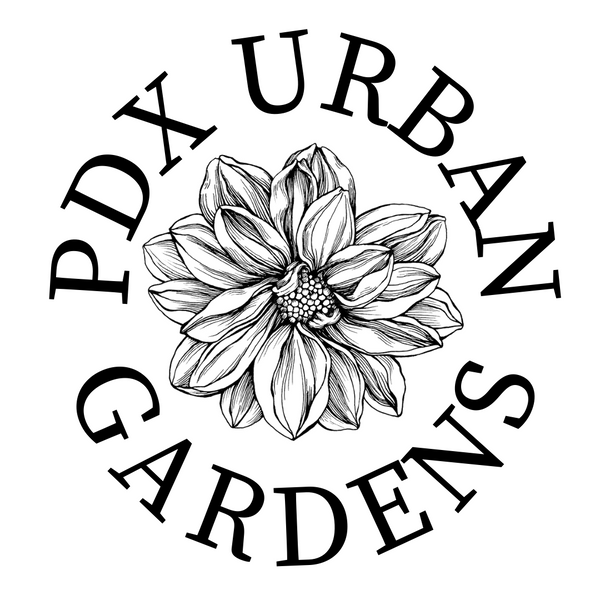PDX Urban Gardens
Planting for Pollinators Class
Planting for Pollinators Class
Couldn't load pickup availability
This hands-on, in the garden, experience is designed to empower people with the knowledge and skills needed to create thriving pollinator habitats in their own urban and suburban garden.
Class flow:
Guided Plant Tour: We will start with a guided tour in a diverse pollinator garden, where you'll learn to identify a variety of pollinator-friendly plants and discover their unique characteristics. 15 min
Seed Saving Demo: You will learn seed identification, collection, and storage methods for successful future planting. 15 min
Plant Propagation Demo: You will learn how to multiply your plants with propagation techniques like divisions and/or cuttings. 15 min
Learning Pollinator Id: Then, with visual aids, we will learn how to identify common pollinators such as bees, butterflies, moths, hoverflies, parasitic wasps, etc, and gain insight into their behavior and habitat preferences. 15 min
Citizen Scientist Pollinator Observation: We will become citizen scientists for the day and learn how to conduct pollinator observation surveys in our garden. Practice will include recording observations and documenting pollinator activity, contributing valuable data to ongoing research efforts. 15 min
Q&A: There will be an opportunity to ask questions, seek advice, and share insights about pollinator gardening, plant selection, and conservation strategies. 15 min
Take-home Plants: As a thank you for your participation you will be able to select a pollinator plant to take home and plant in your garden. These starter plants will serve as a living reminder of your commitment to supporting pollinators and fostering biodiversity.
Key Objectives:
- You will gain practical skills in plant identification, seed saving, propagation, and pollinator observation.
- You will connect with like-minded individuals and experts passionate about pollinator conservation.
- You will learn how to contribute valuable data aimed at monitoring pollinator populations.
- You will be leave more equipped and empowered to support pollinator habitat in own garden and support local biodiversity.
